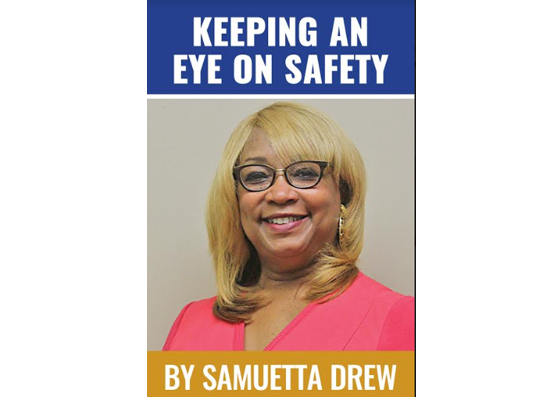By Samuetta Hill Drew
Last week’s article focused on the September 2023 national theme for FEMA and the Ad Council – Take Control in 1,2,3. As stated earlier, this year’s theme is meant to share safety tips for how best to help prepare elderly adults before and during an emergency situation.
This is part two of last week’s article. It will review the need for an emergency disaster plan, along with safety items to include in the plan.
It is essential that you develop a disaster/emergency plan. You must determine any special assistance required and include it in your plan. Here are some additional safety items which should be either considered and/or included in your plan:
- Create a support network of family, friends, and others who can assist you during an emergency. It is recommended that you practice periodically.
- Make sure at least one person in your support network has an extra key to your home, knows where you keep your emergency supplies and knows how to use lifesaving equipment or administer medicine.
- Determine how you will communicate if you have communication needs.
- If you undergo routine treatments administered by a clinic or hospital, work with them to identify back-up service providers.
- Do not forget your pets or service animals. Not all shelters accept pets, so plan for alternatives. Consider asking loved ones or friends outside of your immediate area if they can help with your animals. Research pet-friendly evacuation centers.
- Plan for food, water, and essentials for you and pets or service animals.
- Plan for your transportation if you need help evacuating.
- Include items that meet your individual needs, such as medicines, medical supplies, batteries, and chargers, in your emergency kit.
- Plan how you will have your assistive devices with you during an evacuation such as a walker, wheelchair, etc.
- Make copies of your Medicaid, Medicare, and other insurance cards.
A disaster can disrupt mail service for days if not weeks. Therefore, if you depend on Social Security or other regular benefits, consider switching to electronic payments. It is a simple and important way to protect yourself financially before a disaster strikes. The U.S. Department of the Treasury recommends two safer ways to get federal benefits:
- Direct deposit to your checking or savings account. If you get federal benefits you can sign up by calling 800-333-1795 or sign up online.
- The Direct Express prepaid debit card is designed as a safe and easy alternative to paper.
As we wrap up this month’s preparedness series, I hope the information shared has been of value to you and your loved ones as you continue to work towards Keeping an Eye on Safety.




